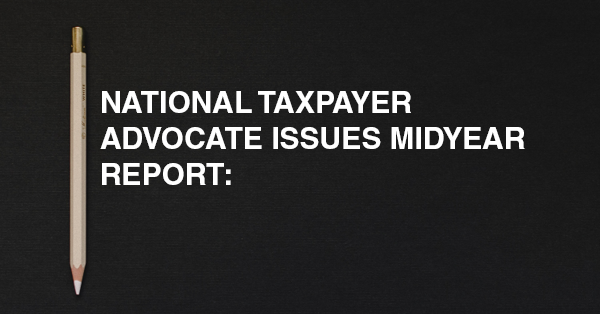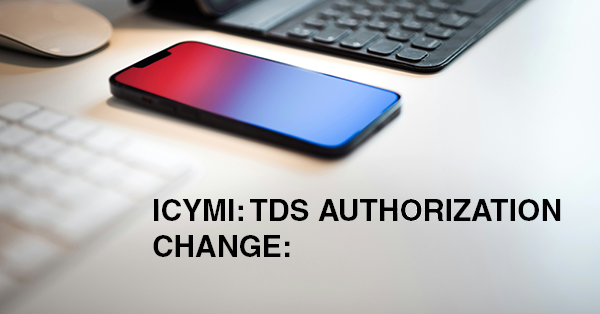NATIONAL TAXPAYER ADVOCATE ISSUES MIDYEAR REPORT:

“This past year and the 2021 filing season conjure up every possible cliché for taxpayers, tax professionals, the IRS, and its employees — it was a perfect storm; it was the best of times and the worst of times; patience is a virtue; with experience comes wisdom and with wisdom comes experience; out of the ashes we rise; and we experienced historical highs and lows.”
ERIN M. COLLINS, NATIONAL TAXPAYER ADVOCATE
Fortunately, in the current midyear report issued June 2023 the NTA has a much more positive assessment of the most recent tax filing season. “What a difference a year makes!” Collins wrote in her preface to the report.
As outlined in this report, the filing season generally ran smoothly this year. The IRS caught up in processing paper-filed original Forms 1040 and various business returns; refunds were generally issued quickly; and taxpayers calling the IRS were much more likely to get through – and with substantially shorter wait times.
Despite these improvements, the report says the IRS is still behind in processing amended tax returns and taxpayer correspondence. Although the IRS was much more effective in answering taxpayer calls this year, that could only be accomplished by prioritizing the phones over other IRS operations, and it resulted in greater delays in the processing of paper correspondence.
In light of the challenges taxpayers have been facing over the last three years, Collins wrote that TAS will be placing heavy emphasis on working with the IRS to improve the processing of tax returns and taxpayer service generally. Among the objectives the report identifies are the following:
- Protect taxpayer rights as the IRS implements its Strategic Operating Plan. The IRS’s Strategic Operating Plan proposes compliance initiatives designed to quickly resolve taxpayer issues and improve tax compliance, particularly among high-income taxpayers, large businesses and pass-through entities. Depending on how tax compliance initiatives are structured and administered, they have the potential to undermine taxpayer rights. During FY 2024, TAS will monitor the implementation of compliance initiatives and advocate for the protection of taxpayer rights.
- Improve correspondence audit processes, taxpayer participation, and agreement and default rates. The IRS conducts most of its audits by correspondence. Taxpayers often have difficulty navigating the correspondence audit process, including difficulty understanding the notices, gathering and providing documentation to substantiate their return positions, responding within prescribed deadlines and having limited options to communicate with an IRS employee. Substantially all Earned Income Tax Credit audits are conducted by mail. During 2022, correspondence audits resulted in a 41.6% no-response rate, only a 20.8% agreement rate and a 20.4% default rate. During FY 2024, TAS plans to continue working on cross-functional teams with other IRS business units to improve the correspondence examination process.
- Implement systemic first-time penalty abatement but allow substitution of reasonable cause. Under existing procedures, the IRS will provide a first-time abatement (FTA) of penalties for failure to file, failure to pay and failure to deposit required tax if a taxpayer is otherwise compliant and has not used FTA within the prior three years. However, FTA is generally provided only if a taxpayer requests FTA or reasonable cause relief. In 2021, the IRS granted FTA to about 200,000 taxpayers requesting relief from these penalties, but there were about 4.3 million taxpayers eligible for relief from these penalties who did not receive it. The result was that a relatively small percentage of sophisticated taxpayers or taxpayers who paid for professional assistance received penalty abatements just for asking while the overwhelming majority of taxpayers who do not know the IRS is willing to abate these penalties did not. Relatedly, TAS believes taxpayers who qualify for “reasonable cause” penalty relief should receive it and not be forced to use their once-in-three-years FTA waiver. During FY 2024, TAS plans to continue working with the IRS to ensure that similarly situated taxpayers receive equitable treatment in the abatement of these penalties.




